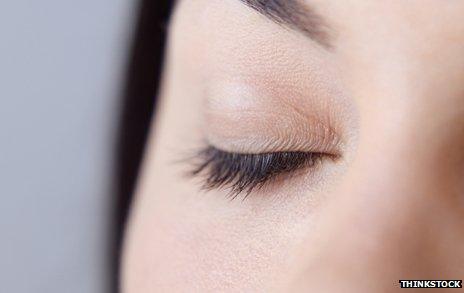Who, What, Why: What is mindfulness?
- Published

The word "mindfulness" seems to be everywhere. Parliament has even started using it. But what is it?
To many people, mindfulness just means "the state or quality of being mindful". That's the first definition the Oxford English Dictionary lists.
But the second meaning of the word, taken from Buddhist philosophies, is proliferating rapidly. Search Amazon's book section and you'll see many titles about mindfulness and how to get it. A quick search of a database of British newspapers shows that in April 2004 it was mentioned just twice. In April this year, the figure was 150.
This other definition of mindfulness is "with reference to yoga philosophy and Buddhism: the meditative state of being both fully aware of the moment and of being self-conscious of and attentive to this awareness; a state of intense concentration on one's own thought processes; self-awareness".
But the dictionary also notes that the term is "in weakened use". It's been diluted from its origins to now encompass all manner of meditation techniques, treatments for daily stress, even ways to lose weight. The word is everywhere. An all-party parliamentary group on mindfulness will be launched on 7 May, city workers are said to be adopting it, external and even the NHS offers information about how to practise it, external.
Matching the challenges of modern life, mindfulness turns out to be a rather adaptable tool which can be practised anytime and anywhere, says Danny Penman, author of Mindfulness: A practical guide to finding peace in a frantic world. Tubes, buses and trains are all apparently suitable places to rehearse mindfulness.
To practise mindfulness, says Penman, a person must focus on what is happening inside their body and mind in real time - a technique that Penman refers to as "full conscious awareness".
The simplest way to practise mindfulness is to sit in a straight backed chair, close your eyes, and focus on the sensations that your breath makes as it flows into and out of your body, says Penman. "As your mind begins to chase after different thoughts, bring your awareness back to the sensations of the breath."
Follow @BBCNewsMagazine, external on Twitter and on Facebook, external